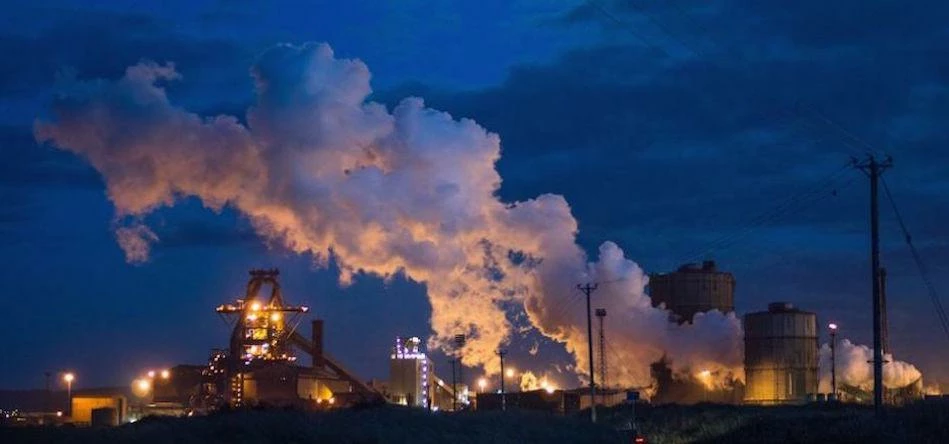
Partner Article
What has the SSI steel works closure taught us about inward investment from Asia?
As Chancellor of the Exchequer George Osborne shakes off the jet lag from last month’strade mission to China, his colleague Boris Johnson, the Mayor of London, is embarking on a similar trip to Japan in an effort ‘to promote the capital as a major investment destination’. On paper it sounds like a great idea, send one of our chief politicians on ‘a mission’ to rouse support for international contributions in our country - but at what price?
Osborne’s five-day visit to China saw him pitching High Speed 2 (HS2) to some of the country’s largest investors, as well as a series of other UK infrastructure projects. Some 6,800 miles west, 1,700 workers at the SSI steel plant in Redcar awaited news of their fate. The steelworks fell into financial difficulty after its Thai parent company found itself unable to repay debts owed to three Thai banks in relation to SSI UK. With Asian investment in the UK on the up, I began to wonder about the impact of inward investment has had upon our economy and whether we should be continuing to encourage these fast-growing nations to dominate our industry.
You only have to read Bdaily South East, City AM or the Financial Times to witness the influx of inward investment in the capital - and the government knows it. Investment in central London’s commercial property market reached £20.5 billion in 2014, according to a report from global real estate adviser Cushman & Wakefield. Falling marginally below the last investment peak in 2007 when £20.6 billion was traded, the influx of international investment is undeniable. The report found Asian investors dominated fourth quarter investment volumes, as the capital, and the government, continues to welcome economic contribution from across developed Asia.
The workers at the SSI steel plant have found themselves victims of economic developments halfway across the globe, while we continue to welcome investment from these fast-growing nations with which we don’t always share political, economic or social values. Of course, I’m not saying we should cut ourselves off from Asian investment - the SSI instance is certainly a dreadful one, but still only one case amongst many. We rely upon these nations for several areas of the manufacturing, engineering and technology industries - to turn our backs all together would be disastrous for our economy, nevermind our political standing on the global stage.
Japan is currently emerging from last year’s shock technical recession, having witnessed the biggest fall in GDP since the March 2011 earthquake and tsunami. The Chinese economy has seen slowing growth in the third quarter, while Thailand has felt the brunt of reducing tourism following several violent attacks. It’s hard to ignore the fact that these countries have found themselves in precarious positions in recent years, as with the SSI steel plant closure, we are definitely beginning to feel the effects.
I find myself hesitant in publishing this piece - a voice in my head reckons a series of ‘The Top 10 funniest photos from Boris’ Japan trade visit’ would be met with a better response than this critical look at inward investment in the UK. Perhaps unsurprisingly, I can’t offer a solution to this predicament I have highlighted - our economy is reliant upon inward investment; however, should we encourage major investment from fast-growing nations? I can’t help but think this is a case of short term gain and, potentially, long term pain.
Regardless of what I have to say, the Prime Minister will, undoubtedly, continue to seek inward investment from the big powers across Asia. Having outlined plans to increase UK exports to £1tn a year and to get 100,000 more UK companies exporting by 2020, Cameron certainly sees benefit in inwarrd investment as he continues to send his colleagues all over the world to “promote” us as an investment destination.
This was posted in Bdaily's Members' News section by Ellen Forster .
Enjoy the read? Get Bdaily delivered.
Sign up to receive our popular morning National email for free.








 £100,000 milestone drives forward STEM work
£100,000 milestone drives forward STEM work
 Restoring confidence for the economic road ahead
Restoring confidence for the economic road ahead
 Ready to scale? Buy-and-build offers opportunity
Ready to scale? Buy-and-build offers opportunity
 When will our regional economy grow?
When will our regional economy grow?
 Creating a thriving North East construction sector
Creating a thriving North East construction sector
 Why investors are still backing the North East
Why investors are still backing the North East
 Time to stop risking Britain’s family businesses
Time to stop risking Britain’s family businesses
 A year of growth, collaboration and impact
A year of growth, collaboration and impact
 2000 reasons for North East business positivity
2000 reasons for North East business positivity
 How to make your growth strategy deliver in 2026
How to make your growth strategy deliver in 2026
 Powering a new wave of regional screen indies
Powering a new wave of regional screen indies
 A new year and a new outlook for property scene
A new year and a new outlook for property scene